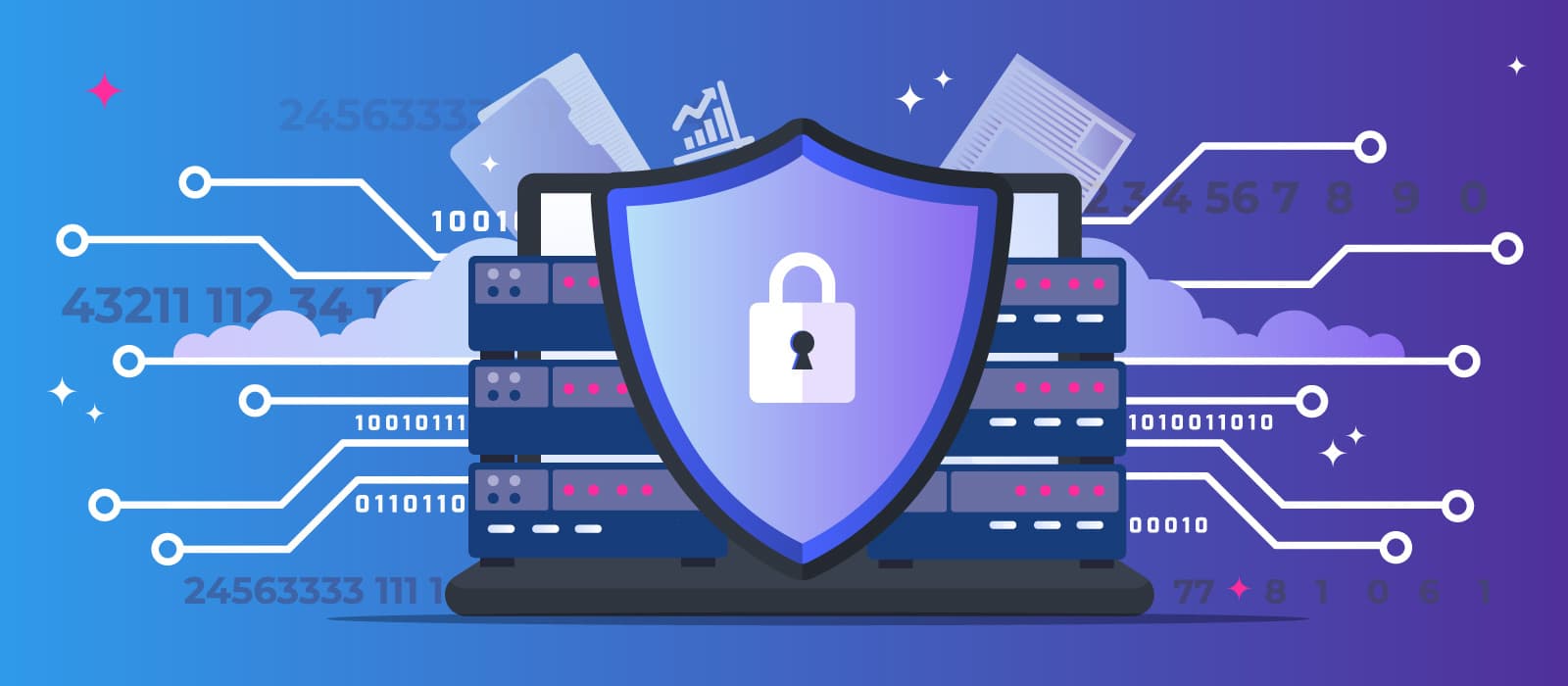Privacy Issues In Blockchain - Unveiling The Privacy Paradox
Explore the intricacies of privacy issues in blockchain. Unveiling challenges, solutions, and the evolving landscape.
Author:Anderson PattersonReviewer:Gordon DickersonFeb 05, 202411.9K Shares217.7K Views

Blockchain technology, renowned for its transparency and security, has become a cornerstone in various industries. However, the inherent design features that make blockchain revolutionary also bring forth challenges, particularly in the realm of privacy. This article delves into the multifaceted privacy issues in blockchaintechnology, exploring the nuances, implications, and potential solutions to address these concerns.
Have a look at the privacy issues in blockchain in detail:
Transparent Ledger
Blockchain's core feature is its transparent and immutable ledger, where all transactions are recorded and visible to participants. While this transparency enhances security and accountability, it compromises user privacy. Transactions, once recorded, are permanently accessible, creating a challenge for individuals seeking complete anonymity.
Public Addresses And Traceability
Blockchain transactions are linked to cryptographic public addresses rather than personal identifiers. However, the persistent nature of these addresses enables skilled analysts to trace and potentially de-anonymize users. This traceability raises concerns about the privacy of individuals engaging in blockchain transactions.
Public Vs. Private Blockchains
All data saved on public blockchains, like Bitcoin, is visible to all participants and is accessible to everybody. Because of this, maintaining data privacy is challenging, particularly when sensitive data is kept on the blockchain. However, because private blockchains are only accessible by authorized users, they are more suited for uses where a high degree of data privacy is required.
Vulnerabilities In Smart Contracts
Smart contracts are blockchain-stored, self-executing contracts. They eliminate the need for middlemen by automating transactions and enforcing rules. However, smart contracts are susceptible to manipulation and hacking, which might reveal private data kept on the blockchain.
Pseudonymity
On the blockchain, using pseudonyms rather than real names can offer some degree of anonymity. Pseudonymity, however, can also result in the improper use of technology for illicit purposes, such financing terrorism and money laundering.
Regulatory Compliance
In the context of blockchain technology, observing Data Privacy laws and regulations, including GDPR, might be difficult. Due to the decentralized structure of the blockchain, it might be challenging to assign blame for maintaining compliance, and there is a chance that several jurisdictions' laws would contradict.
On-Chain Data And Exposure
Smart contracts and decentralized applications (DApps) often store data directly on the blockchain. While this ensures transparency and security, it also poses a privacy risk. Sensitive information stored on the blockchain becomes accessible to anyone with the capability to analyze the chain, potentially leading to unauthorized data exposure.
Linkability And User Identification
Linkability refers to the ability to link multiple transactions or activities to a single user. This linkability can be exploited to build comprehensive profiles, compromising user privacy. As blockchain transactions are visible and interconnected, identifying patterns can potentially reveal the real-world identities behind cryptographic addresses.
Privacy Challenges In Permissioned Blockchains
Even in permissioned blockchains where access is restricted to authorized participants, privacy concerns persist. While these blockchains offer controlled access, the visibility of data within the network can still pose risks to privacy, especially in enterprise settings where sensitive business information may be involved.
Zero-Knowledge Proofs And Privacy Enhancements
To address these challenges, privacy-enhancing technologies like zero-knowledge proofs have been introduced. Zero-knowledge proofs allow parties to prove the validity of a statement without revealing the actual information. This cryptographic technique enables private transactions, enhancing user privacy on blockchain networks.
Privacy Coins And Confidential Transactions
Privacy-focused cryptocurrencies, often referred to as privacy coins, implement features like confidential transactions to obfuscate transaction amounts. Monero and Zcash are notable examples. These privacy-centric coins aim to provide enhanced anonymity by concealing transaction details, making it more challenging to trace user activities on the blockchain.
Regulatory Challenges And Compliance
Blockchain's transparent nature poses challenges in the context of evolving regulatory frameworks. Striking a balance between privacy and compliance with anti-money laundering (AML) and know your customer (KYC) regulations is an ongoing challenge. Regulators seek ways to ensure transparency without compromising user privacy.
Blockchain Surveillance Companies
The rise of blockchain analytics and surveillance companies further intensifies privacy concerns. These firms analyze on-chain data to trace transactions, often collaborating with law enforcement agencies. The implications for user privacy are significant, as these analyses can potentially infringe on the fundamental right to financial privacy.
Data Monetization And Privacy Concerns
Blockchain data, especially in permissionless networks, has become a valuable commodity. Data monetization models often involve the sale of transaction information for analytics and research purposes. This practice raises ethical questions about user consent and control over personal data in the blockchain space.
Solutions Of Privacy Issues In Blockchain
Protecting data privacy in blockchain technology is paramount for responsible and ethical use of personal information. A comprehensive strategy is essential to tackle this challenge effectively. Privacy-enhancing technologies such as homomorphic encryption, ring signatures, and zero-knowledge proofs play a crucial role in securing personal information during blockchain transactions, enabling secure data sharing.
Pseudonymity and Identity Verification are vital components of privacy protection on the blockchain. By using pseudonyms, user identities can be shielded, and additional measures like Know Your Customer (KYC) and Anti-Money Laundering (AML) practices ensure the responsible use of these pseudonyms, preventing misuse.
Data Erasure or Anonymization addresses the tension between blockchain's immutability and data privacy regulations. Implementing procedures for data deletion or anonymization enables compliance with regulations like the GDPR's right to be forgotten.
Education initiatives are essential for increasing awareness of data privacy concerns associated with blockchain technology. These programs educate users and developers about the significance of data privacy and provide insights into safeguarding private information during blockchain transactions.
Ensuring Regulatory Compliance is crucial to the ethical use of personal data in blockchain. Compliance with data privacy laws, such as the establishment of precise guidelines and criteria, guarantees that blockchain technology aligns with ethical and responsible practices in handling personal information.
Privacy Issues In Blockchain - FAQs
What Is Privacy Of Blockchain Technology?
Privacy in blockchain technology refers to the protection of sensitive information related to transactions and users. While blockchain is transparent, privacy measures like cryptographic techniques, privacy coins, and decentralized identity solutions aim to conceal transaction details and user identities, striking a balance between transparency and confidentiality in the decentralized ecosystem.
Why Does Blockchain Privacy Matter?
Steer clear of fraud and scams - If con artists can see your transaction history and the amount of cryptocurrency you own, they will target you. To get into your account or fool you into "investing" in a bogus initial coin offering (ICO), they might attempt phishing.
How Do Transparent Ledgers Impact User Privacy In Blockchain?
Transparent ledgers expose all transactions, challenging user privacy on blockchain by creating a permanent, accessible record.
What Is Linkability In Blockchain, And Why Is It A Privacy Concern?
Linkability allows tracing multiple transactions to a user, raising privacy concerns as it can lead to the identification of individuals.
What Are The Security Issues With Blockchain?
Four main methods are used by hackers and scammers to compromise blockchains: phishing, routing, Sybil, and 51% attacks. Phishing is a fraudulent attempt to get login credentials from a user. Emails seeming to be from reputable sources are sent by scammers to wallet key owners.
How Do Blockchain Surveillance Companies Impact User Privacy?
Blockchain surveillance companies analyze on-chain data, raising privacy concerns as their activities can potentially infringe on users' financial privacy.
What Are Decentralized Identity Solutions, And How Do They Address Privacy Issues In Blockchain?
Decentralized identity solutions empower users to control personal information selectively, providing a response to privacy challenges in the blockchain space.
Conclusion
As blockchain technology continues to evolve, addressing privacy issues in blockchain is paramount to ensure the responsible and ethical use of this transformative technology.
Striking a balance between transparency and privacy is an ongoing challenge, but with advancements in privacy-enhancing technologies, decentralized identity solutions, and a collective commitment to user education, the blockchain community is actively working toward a more private and secure future for this groundbreaking technology.
Jump to
Transparent Ledger
Public Addresses And Traceability
Public Vs. Private Blockchains
Vulnerabilities In Smart Contracts
Pseudonymity
On-Chain Data And Exposure
Linkability And User Identification
Privacy Challenges In Permissioned Blockchains
Zero-Knowledge Proofs And Privacy Enhancements
Privacy Coins And Confidential Transactions
Regulatory Challenges And Compliance
Blockchain Surveillance Companies
Data Monetization And Privacy Concerns
Solutions Of Privacy Issues In Blockchain
Privacy Issues In Blockchain - FAQs
Conclusion

Anderson Patterson
Author
Anderson Patterson, a tech enthusiast with a degree in Computer Science from Stanford University, has over 5 years of experience in this industry.
Anderson's articles are known for their informative style, providing insights into the latest tech trends, scientific discoveries, and entertainment news.
Anderson Patterson's hobbies include exploring Crypto, photography, hiking, and reading.
Anderson Patterson's hobbies include exploring Crypto, photography, hiking, and reading.
In the Crypto niche, Anderson actively researches and analyzes cryptocurrency trends, writes informative articles about blockchain technology, and engages with different communities to stay updated on the latest developments and opportunities.

Gordon Dickerson
Reviewer
Gordon Dickerson, a visionary in Crypto, NFT, and Web3, brings over 10 years of expertise in blockchain technology.
With a Bachelor's in Computer Science from MIT and a Master's from Stanford, Gordon's strategic leadership has been instrumental in shaping global blockchain adoption. His commitment to inclusivity fosters a diverse ecosystem.
In his spare time, Gordon enjoys gourmet cooking, cycling, stargazing as an amateur astronomer, and exploring non-fiction literature.
His blend of expertise, credibility, and genuine passion for innovation makes him a trusted authority in decentralized technologies, driving impactful change with a personal touch.
Latest Articles
Popular Articles

